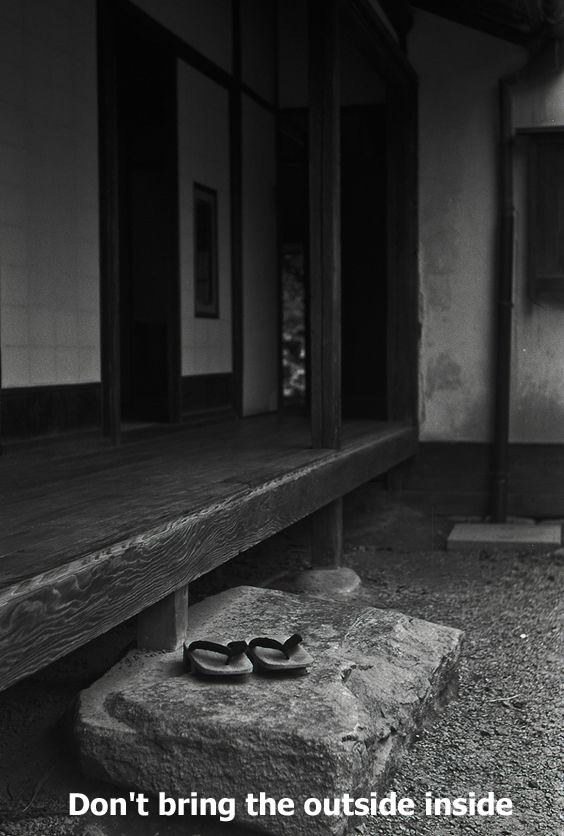Attention to cleanliness or cleaning is called Souji (掃除) in Japanese. Maintaining constant attention to your, training space, clothing and equipment will bring harmony and balance.
Why Souji Matters?
In Japanese culture cleaning is not some mundane task that must be undertaken for health reasons alone. It is often considered a way of “cleansing the mind and spirit”. In other words, ‘by cleansing my home – I cleanse myself’.
Back in the Edo period when most Japanese houses had hearths and fire stoves, the house would rather get dirty by the end of the year. Edo Castle started to be cleaned in December, and people started to believe that the December cleaning was not merely a matter of cleaning the house, but also as a purification ritual in preparation for greeting the New Year God, Toshigami-sama.
The Dojo is a place to cultivate the three essentials, body, mind and spirit. Therefore The act of Souji embodies the physics, mental & spiritual actions of cleansing.
Everyone should feel welcome to participate in Osouji whether they have never trained before, are active members of the dojo.
In our Dojo,there are 2 types of Souji. Daily cleaning or Niten Souji (日天掃除) and Yewr end cleaning or Osouji (大掃除).
The most important part of o-souji, known as susuharai (煤払い, dust cleaning), is the act of cleaning your home and workplace from dust and dirt. While doing susuharai, we also give thanks for the blessings of the previous year and we clean to purify the spaces for the year to come.


A big thank you for your post. Thanks Again. Keep writing. Daphna Barney Abbotsen
Really enjoyed this article. Really thank you! Want more. Erin Barri Christabelle
Would love to constantly get updated great web blog ! . Binnie Aluino Fillian
I like this post, enjoyed this one appreciate it for posting. Sella Sherwood Ardin
There is definately a lot to find out about this topic. I really like all of the points you have made. Shara Tonnie Honey
Thanks so much for the blog article. Thanks Again. Cool. Willy Lawton Bartlett